Aurora Botnia - RoPax Ferry + Greentech Proving Ground
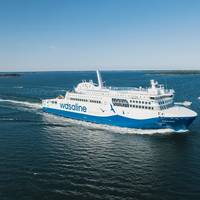
Built by Rauma Marine Constructions, in Rauma, Finland, and launched in 2021, the 150-meter-long Aurora Botnia boasts a long list of onboard equipment that help it to earn its “green” designation, a label that is confirmed via a Clean Design notation from classification society DNV. The ship is also compliant with the International Maritime Organization’s (IMO) 2030 greenhouse gas reduction target.Wasaline CEO Peter Ståhlberg describes Aurora Botnia as “a masterpiece of cooperation” and noted that the vessel is over 80% domestic made."I'm really proud of the Aurora Botnia.
ABS to Support Industrial-Grade, Cyber-Physical Platform for Shipboard OT
ABS has been announced as the industry collaborator to build the Maritime Testbed of Shipboard Operational Technology (MariOT) Systems. The project is led by iTrust, Center for Research in Cyber Security at the Singapore University of Technology and Design (SUTD), in collaboration with ABS and Singapore Polytechnic’s Centre of Excellence in Maritime Safety (CEMS).The MariOT will support a host of cybersecurity activities to meet the challenges in the maritime industry’s push towards digitalization. MariOT will be the world's first industrial-grade, cyber-physical platform, combining essential shipboard OT systems with virtual simulation models. “We will build virtual models of ship OT systems using advanced multi-physics modeling and simulation.
DNV's Maritime Forecast to 2050: No Industry Can Decarbonize in Isolation
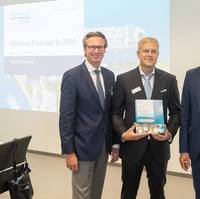
Maritime classification society DNV on Tuesday unveiled its latest Maritime Forecast to 2050 report with a new focus on how to overcome the “ultimate hurdle” of fuel availability.The 84-page forecast is the sixth edition of its kind, and this year it considers the comprehensive production, distribution and bunkering infrastructures required to enable the maritime industry’s shift to carbon-neutral fuels.The report also presents an updated outlook on regulations, drivers, future technologies, and costs for decarbonizing shipping.
DNV Report Says Maritime Energy Transition is Gaining Speed
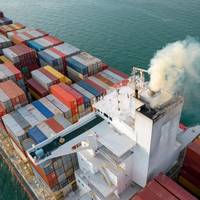
More than 1000 ships are expected to be ordered per year through 2030, and with growing pressure on the shipping industry to decarbonize, the shipowners must be careful with fuel selection and ship design, as a misstep here can have damaging consequences in the future.This is according to the latest Maritime Forecast to 2050 launched Tuesday by DNV.DNV stressed that shipping decarbonization was no longer just a top priority for the International Maritime Organization (IMO), but for the regional and national legislators…
Pandemic Forces Virtual Safety Checks for Oil Tankers
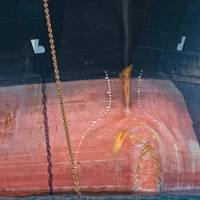
Ship assessors are resorting to virtual inspections of oil tankers to keep vessels afloat, as the coronavirus pandemic makes physical visits to check for seaworthiness tougher and a slump in fuel demand increases the need for ships as storage.Oil tankers require rigorous inspections twice a year to reduce the risk of oil spills or mechanical collapse with polluting cargoes onboard.But the global pandemic has disrupted international trade, leaving merchant seafarers stuck on ships…
Future Ship Fuels: Cut through the Smoke

Ship owners increasingly face complex investment decisions as they try to navigate the most efficient course to the low-carbon future. Ever since the IMO set the industry’s ambitious emission-reduction targets for 2030 and 2050, owners have been inundated with information about future fuels and technologies that may, or may not, ultimately lower the carbon footprints of their fleet.Some of the new technologies hold promise, but the day-to-day viability of too many of them remains unproven; the same can be said for many of the potential fuels.
Autonomy: The Vision of Autonomous Shipping
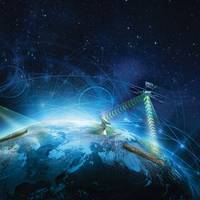
The end of 2018 provides an excellent opportunity to highlight some of the measures that have been taken by the maritime industry over the past year to develop a better understanding of autonomous shipping. A drive towards autonomous shipping has been embraced by many major players such as Rolls Royce and Wärtsilä, and this has led to numerous new strategies, visions, and projects that are pushing the boundaries of technological innovation. It’s no longer a matter of whether technology can achieve this next step…
Zero Emission Ships: Comparing Fuel Choices
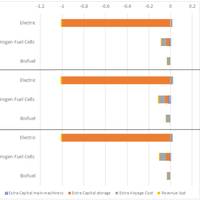
There's a new report out from the Sustainable Shipping Initiative (SSI) -- authorted by Lloyds Register (LR) and University Maritime Advisory Services (UMAS) -- that examines different fuel options and costs as increasingly the world's oceangoing fleet is pushed toward decarbonization. As a back drop, as Mariitme Reporter & Engineering News reports in its May 2018 edition with its cover feature interview with Kitack Lim, Secretary General of the International Mariitme Organization (IMO), the IMO mandate is to cut emissions 50% by 2050, as agreed in mid-April 2018, as compared to 2008 levels.
Harley Marine Deploys Ruggedized Routers
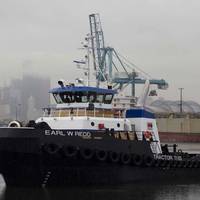
Harley Marine, like many maritime companies, required a solution for simple, fast and reliable network connectivity to ensure daily tasks such as invoice processing, navigation, marine-mapping and more could be completed seamlessly, and that its employees could deliver consistent customer service. The full-service maritime company chose Cradlepoint for a cost-effective solution that would augment VSAT (satellite) and replace outdated technology to securely connect management to the vessels deployed in waterways all over the globe.
Unmanned Surface Vessels: From Concept to Service
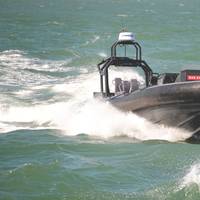
Over the next decade the maritime sector is likely to see one of the largest changes since sail gave way to steam. Unmanned Surface Vehicles (USV) are now being considered for various marine roles and the drivers for rapid development are significant. Unmanned or autonomous vessels have passed through the trial and evaluation stage and are now being adopted for civilian and military applications. The maritime sector now has the opportunity to shape technology developments from legislative and end-user standpoints.
Hydrasun Secures Shell Integrity Management Contract
Hydrasun, a provider of integrated fluid transfer, power and control solutions to the global energy market, has secured a five-year contract with two, one year extension options, for the continued supply of Flexible Hose Assembly (FHA) and Small Bore Tubing (SBT) integrity management services together with product supply, to Shell U.K. Ltd. This new award signifies Hydrasun’s commitment to long-term customer relationships, as it extends the company’s track record, since 2007, of supporting Shell with the provision of these services under the terms of a formal contract. The scope of work, covering all Shell U.K. assets offshore and onshore, includes the provision of hose management services, technical support, inspections and supply and installation of FHA’s.
Hybrid Hype
The Hudson and East rivers are constantly abuzz with swarms of ferry, patrol, and cargo traffic. In August, New York hosted the Transportation Research Board’s ferry committee for a midyear conference. I was fortunate to be a guest presenter at this event and speak on behalf of vessel operations on the U.S. Marine Highways. With such high use on these historic waters, it was not surprising that much of the discussion circled back to the environment and vessel impact. When congress expanded the Marine Highways program in 2010, it was a big win for the marine industry. Funding new projects to merge people and freight off of the accident-prone and traffic-laced streets and onto unpaved highways is a philosophy we can all embrace.
Rolls-Royce to Design PSVs
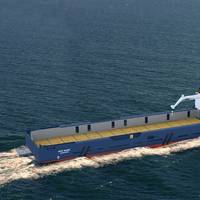
Rolls-Royce received an order from Singapore-based offshore company, PaxOcean, to design and equip two oil platform supply vessels. The vessels are to be built at PaxOcean Engineering's ship yard in Zhuhai, China. The £10 million contract includes vessel design, a fully integrated Rolls-Royce diesel electric propulsion system and deck machinery. Ronny Pål Kvalsvik, Rolls-Royce, Sales Manager, Ship Technology - Offshore, said: "We are delighted to continue our strong relationship with PaxOcean Engineering and to add to their fleet of Rolls-Royce designed ships.
Ultra-Low Wake Ferry Gets Green Light
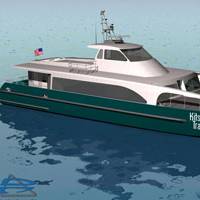
All American Marine, Inc. and Teknicraft Design, Ltd. have successfully made a proposal to Kitsap Transit to bring a new passenger ferry to Rich Passage. On Tuesday, April 21st, the commissioners of Kitsap Transit unanimously approved $5.3m for the purchase of a 77 ft ultra-low wake Teknicraft catamaran and on May 18th, All American Marine received the signed notice-to-proceed. The high speed passenger catamaran will carry 118 passengers and operate between Bremerton and Seattle, Washington at speeds of 29 to 38 knots.
Training & Education: CBT and the Inland Tow and Barge Industry
With fleets spread over 25,000 miles of waterways, the inland tow and barge industry faces training and communication challenges intensified in comparison to other sectors of the maritime industry. Even though they may be close to home, inland waterways crew are constantly on the move and lunch bucket crews need to preserve valuable time spent onboard and commuting. The abundance of locks, bridges and other traffic along the waterways keeps crew busy performing critical navigation duties, making it essential that time spent on training is efficient and maximizes value. Large operators face the challenge of constantly improving the value of training dollars spent and driving industry best practices.
NCL First with Onboard Cell Service
NCL Corporation will be the first cruise line to bring passengers on North American cruises the ability to use their cell phones even when communications towers are oceans away. The company is providing the innovative new offering through Wireless Maritime Services, a joint venture of AT&T Wireless and Maritime Telecommunications Network (MTN). Leading the way in shipboard technology, NCL pioneered the industry's first Internet access on the high seas with its Internet cafe in 1999. In 2002, NCL became the first cruise line to provide remote wireless Internet (also known as Wi-Fi) to its guests. Both services are now standard throughout NCL's entire fleet. "Cutting-edge onboard technology is important to our guests," said Colin Veitch, NCL's president and CEO.









